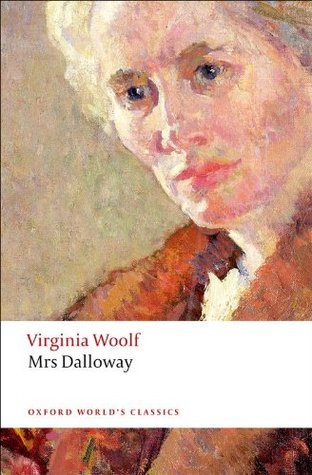More on this book
Community
Kindle Notes & Highlights
MRS DALLOWAY said she would buy the flowers herself.
For in marriage a little licence, a little independence there must be between people living together day in day out in the same house;
she always had the feeling that it was very, very dangerous to live even one day.
This late age of world’s experience had bred in them all, all men and women, a well of tears. Tears and sorrows; courage and endurance;
half the time she did things not simply, not for themselves; but to make people think this or that;
But this question of love (she thought, putting her coat away), this falling in love with women. Take Sally Seton; her relation in the old days with Sally Seton. Had not that, after all, been love?
‘if it were now to die, ’twere now to be most happy’.
Then came the most exquisite moment of her whole life passing a stone urn with flowers in it. Sally stopped; picked a flower; kissed her on the lips. The whole world might have turned upside down! The others disappeared; there she was alone with Sally. And she felt that she had been given a present, wrapped up, and told just to keep it, not to look at it—a diamond, something infinitely precious, wrapped up, which, as they walked (up and down, up and down), she uncovered, or the radiance burnt through, the revelation, the religious feeling!
He dropped her hand. Their marriage was over, he thought, with agony, with relief. The rope was cut; he mounted; he was free, as it was decreed that he, Septimus, the lord of men, should be free; alone (since his wife had thrown away her wedding ring; since she had left him), he, Septimus, was alone, called forth in advance of the mass of men to hear the truth, to learn the meaning,
How remorseless life is!
The compensation of growing old, Peter Walsh thought, coming out of Regent’s Park, and holding his hat in his hand, was simply this; that the passions remain as strong as ever, but one has gained—at last!—the power which adds the supreme flavour to existence—the power of taking hold of experience, of turning it round, slowly, in the light.
But women, he thought, shutting his pocket-knife, don’t know what passion is. They don’t know the meaning of it to men.
‘give me your hand and let me press it gently’
‘and if someone should see, what matter they?’
Cheerfully, almost gaily, the invincible thread of sound wound up into the air like the smoke from a cottage chimney, winding up clean beech trees and issuing in a tuft of blue smoke among the topmost leaves. ‘And if someone should see, what matter they?’
London has swallowed up many millions of young men called Smith; thought nothing of fantastic Christian names like Septimus with which their parents have thought to distinguish them.
The whole world was clamouring: Kill yourself, kill yourself, for our sakes. But why should he kill himself for their sakes?
Once you fall, Septimus repeated to himself, human nature is on you.
‘Nobody lives for himself alone,’
order rest in bed; rest in solitude; silence and rest; rest without friends, without books, without messages; six months’ rest; until a man who went in weighing seven stone six comes out weighing twelve.
But Proportion has a sister, less smiling, more formidable,
Conversion is her name and she feasts on the wills of the weakly, loving to impress, to impose, adoring her own features stamped on the face of the populace.
But Conversion, fastidious Goddess, loves blood better than brick, and feasts most subtly on the human will.
She had never seen the sense of cutting people up, as Clarissa Dalloway did—cutting them up and sticking them together again;
‘But let us eat first,’ she said.
He had, once upon a time, been jealous of Peter Walsh; jealous of him and Clarissa.
He had not said ‘I love you’; but he held her hand. Happiness is this, is this, he thought.
Calmly and competently, Elizabeth Dalloway mounted the Westminster omnibus.
Partly for that reason, its secrecy, complete and inviolable, he had found life like an unknown garden, full of turns and corners, surprising, yes;
People seemed to come in a rush.
What business had the Bradshaws to talk of death at her party?
Death was defiance. Death was an attempt to communicate, people feeling the impossibility of reaching the centre which, mystically, evaded them; closeness drew apart; rapture faded; one was alone. There was an embrace in death.
Somehow it was her disaster—her disgrace. It was her punishment to see sink and disappear here a man, there a woman, in this profound darkness, and she forced to stand here in her evening dress. She had schemed; she had pilfered. She was never wholly admirable.
Fear no more the heat of the sun.
She felt somehow very like him—the young man who had killed himself.
But there were so many doors, such unexpected places, she could not find her way.
What is it that fills me with extraordinary excitement? It is Clarissa, he said. For there she was.
They told me, Heraclitus, they told me you were dead, They brought me bitter news to hear and bitter tears to shed. I wept as I remembered how often you and I Had tired the sun with talking and sent him down the sky And now that thou are lying, my dear old Carian guest, A handful of grey ashes, long, long ago at rest, Still are thy pleasant voices, thy nightingales, awake; For death, he hath taken all away, but these he cannot take.


